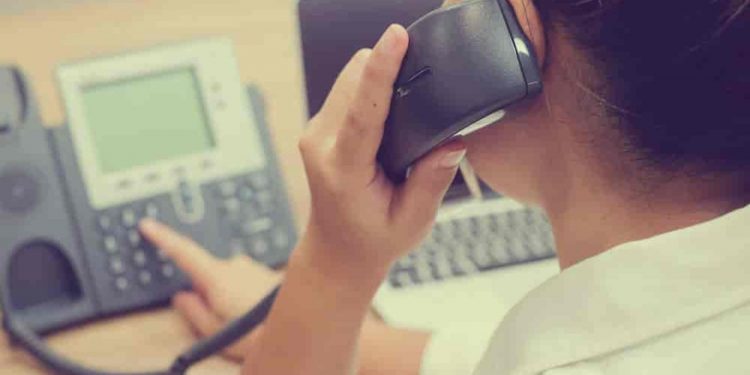(Updated on 19 Sep 2022)
The AWARE Helpline turns 30 this year and the number of women it helps on a daily basis grew to a record. The Helpline eventually fielded over 6,300 a year in both 2020 and 2021.
Grounded in feminist principles and set up as a safe space by women for women, the organisation did not envisage its flagship service to become more necessary than ever during the circuit breaker caused by Covid-19 pandemic.
“Before Covid-19, we had a high percentage of calls, over 30 per cent, that had to do with marital relationships. Many people were then asking about divorce. The relationship was not working out and they were feeling really unhappy. Sometimes there was abuse as well. Then the Covid-19 (pandemic) hit and that dropped to about 20 per cent and people called about emotional stress, about abuse and violence. We saw a huge spike in family violence cases during the lockdown. It was over 100 per cent increase,” Executive Director of the Association of Women for Action and Research (AWARE) Corinna Lim tells TheHomeGround Asia.
“Legal clinics and counselling are also what people call about through the helpline. They want to make appointments for counselling because our services are good and very affordable. It’s actually not so cheap to get private counselling,” she adds.
And while the Covid-19 pandemic put a spanner in the works for many organisations, it actually helped the helpline service at AWARE pivot onto a higher plane.
A purely voluntary effort
AWARE had already been in existence for seven years before it decided to set up a helpline in 1991 for women in crisis.
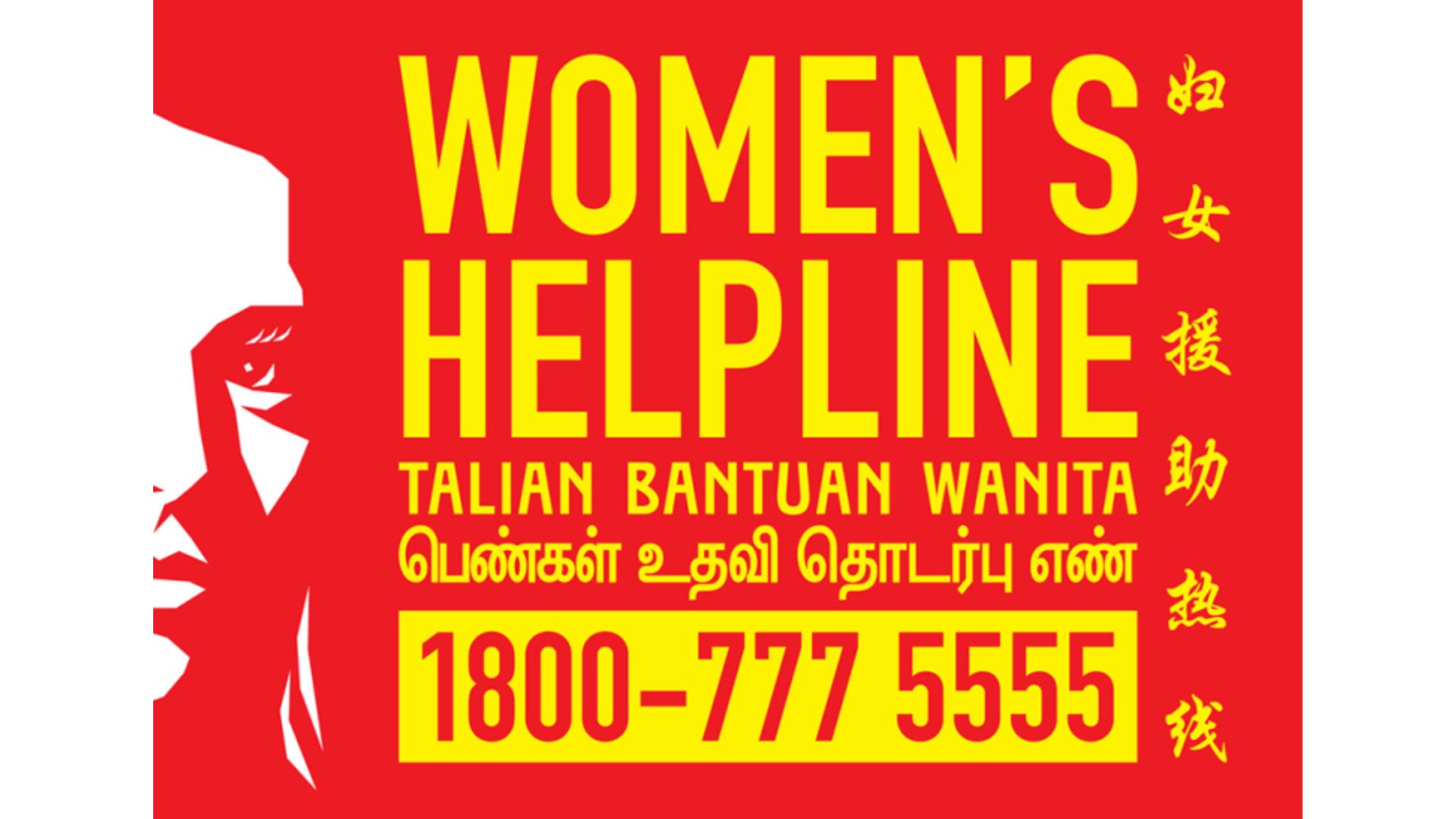
“It was started by volunteers because we really didn’t have staff, yet, we felt very strongly that there were women who needed help and who could not get immediate support. They didn’t know where to go and we wanted to provide a very easy way for women to get help,” Ms Lim says.
The helpline idea was mooted by the then President of AWARE Claire Chiang, who was inspired by the Samaritans of Singapore (SOS).
“So we just took a leaf from it. Claire had been trained by SOS but we felt that it shouldn’t just be a helpline for suicide. We needed more. It was and still is important to have a very safe space where women felt comfortable enough to call. So a ‘by women for women’ helpline was what was conceived,” Ms Lim adds.
Today, it has grown to become “much more professionalised”.
“We started with having one staff and now we have a team. We still depend highly on volunteers and that’s one of the beauties of this helpline. It feels like a community effort and it is very much that. The staff are to support the volunteers by filling in the gaps. … Also it’s very tough work for volunteers who are not professionals but they always have staff to fall back on whenever they have a difficult call, an unusual situation or a call that has stressed them out,” Ms Lim says.
And women find out about the helpline “very much by word of mouth”, but knowing the number and knowing it exists is one thing, actually picking up the phone to dial the number is another.
“You will call the helpline when your friends say, ‘Hey, I think you should call AWARE. I’ve used them’, or ‘I’ve heard that they are very good. They’ve helped my sister’. It’s very much the community saying ‘Call. You might need professional help’,” Ms Lim says.
Covid-19 pandemic helps save lives
Globally, during the Covid-19 pandemic lockdown, reports of domestic abuse have increased. Worldwide data showed that there is every reason to believe that government-imposed restrictions to keep the virus at bay had spread yet another ill – the cases of family violence went up whenever families spent more time together, said Professor Marianne Hester, a Bristol University sociologist who studies abusive relationships.
With families under lockdown, hotlines were lighting up with family abuse reports and calls for help. In Singapore, police reports related to family violence increased by 22 per cent since the beginning of the “circuit breaker” period in April 2020. From 7 Apr to 6 May, 476 reports were filed for offences associated with family violence. These include hurt, criminal force and assault, criminal intimidation and wrongful confinement.
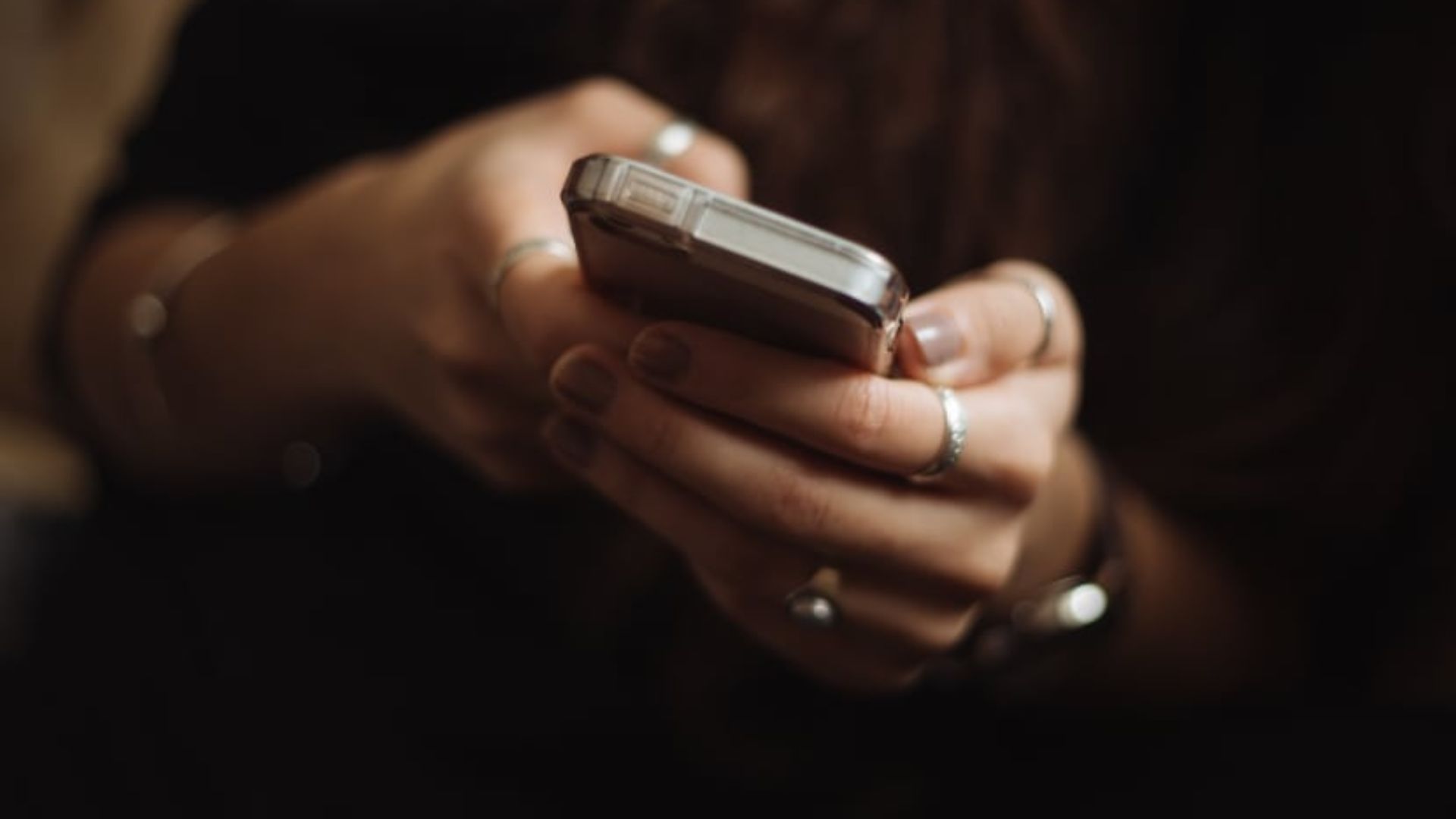
Ms Lim says however the helpline has evolved, it always remains “the simplest way to speak to someone and to get immediate help”..
“You don’t have to walk into an office. You can be completely anonymous if you want. You don’t have to give us your actual name and whatever information you want to give us is fine. … You just pick up the phone,” she says, adding that with a deluge of calls during lockdown and restrictions, “you might have to call more than once in order to get through”.
“One of the things that we have been managing all this time is how do we make sure we get to pick up as many calls as possible, knowing that when people want help they are really quite stressed and they want to speak to someone immediately and not able to get through might add to the stress,” Ms Lim says.
She adds that AWARE has since introduced technology to its Helpline.
“During Covid-19, we introduced a chat. Some people that we know were experiencing family violence but they were home and they couldn’t call because there were no safe times, so they would actually make appointments on chats on their laptops or computers. That’s how we supported people during the pandemic,” she says.
While emails and chats are new, the majority of the people still call and prefer to speak to someone on the line. “But younger people prefer to chat. So we have moved according to the demand of the market so that’s what we are hoping to remain as that first port of call. In fact, the Covid-19 restrictions were quite helpful in allowing us to expand our services,” Ms Lim says.
Before the pandemic, AWARE had both staff and volunteers go into the office, “so you would have the helpliners in a room and they can see the staff because it is a glass wall and they could actually wave to the staff and they would be on standby to help any helpliner”.
Covid-19 changed all that since people could not come to the office to man calls, which may last between a few minutes and an hour, or even longer when there are safety concerns.
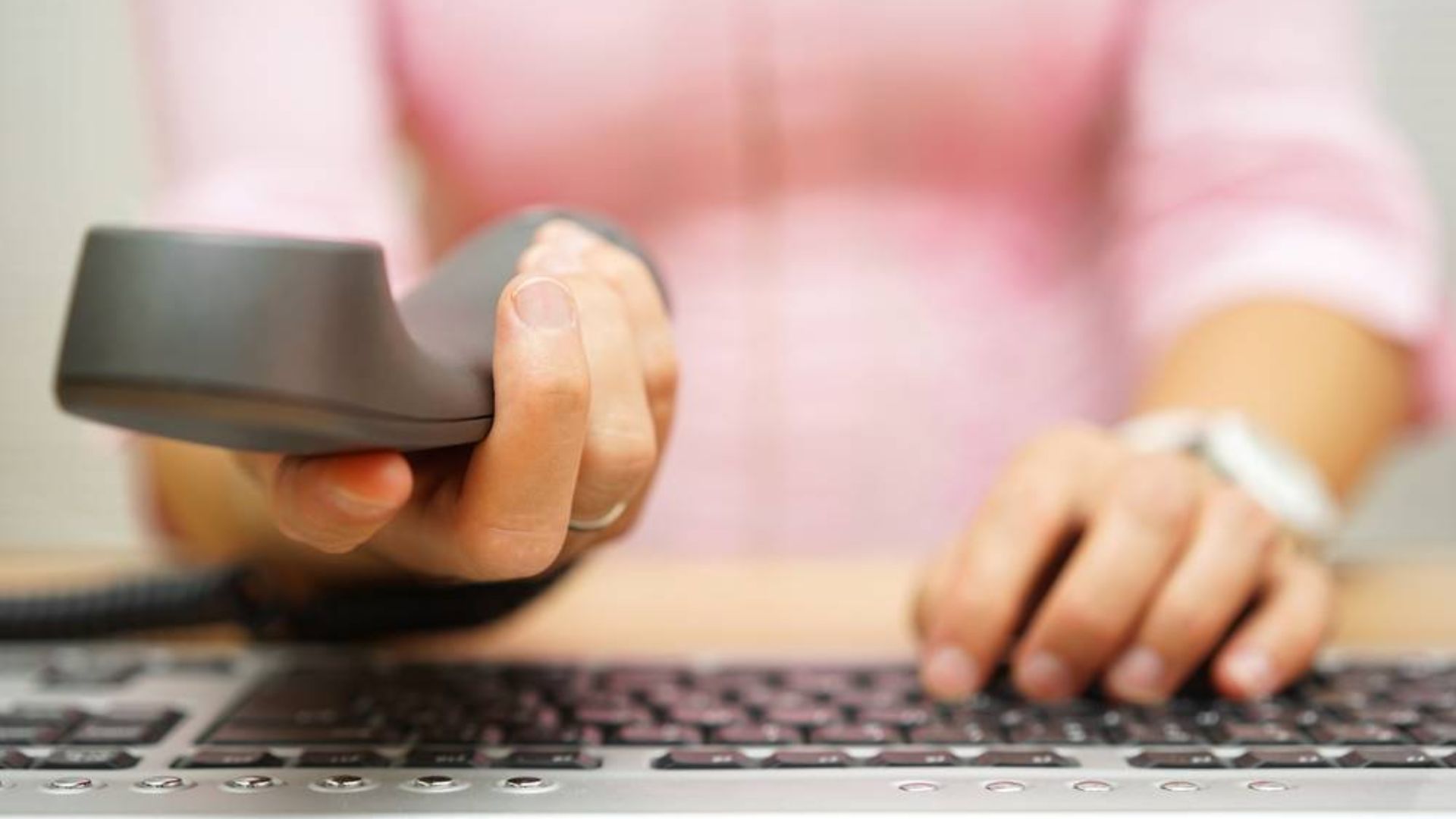
“We knew that it was really a time of crisis for Singapore and we needed to have our helplines up more than ever. Thankfully we had the foresight before the pandemic to move into Internet phones. When Covid-19 hit a week later, we became remote and all the helpliners who had been coming in and who were trained, could receive calls from home. That actually helped us increase the number of helpliners, … but we still needed to make sure that all our helpliners from where they were had the support that they needed in order to provide the service well,” Ms Lim says.
One such helpliner is Lily (not her real name). She started volunteering on the Women’s Helpline in 2020 when there was a surge in calls due to the pandemic. She has since been working full-time, providing support on the helpline.
“I make it a priority to build the caller’s trust by holding the space for her to share as much as she is comfortable to, and reminding her that she has a choice,” she tells TheHomeGround Asia.
Lily says there are times when the caller would sob profusely, “so it is important to calm her down by getting her to partake in some breathing exercises and giving her time to drink a glass of water, before restarting the conversation”.
“At other times, the caller may require me to stay silent or prompt her with some questions as she builds up her courage to share. As this happens, I make it a point to listen attentively and respond empathetically. It is also common for a caller to blame herself as she shares her problems. Whenever this happens, I would say ‘It is not your fault’ and remind her of strengths so that she can tap on them when needed, share relevant resources and reiterate that she has options to make an informed decision,” she adds.
Recruitment of volunteer helpliners are strict, stringent
Ms Lim says AWARE does come across people who want to volunteer for the Helpline because they were helped before and want to give back. The organisation, she says, is very careful when it comes to screening and recruiting volunteers for calls on its Helplines as it is “a very sensitive service”. AWARE needs to sieve and choose people “with the right aptitude”.
“Just because you care or have been helped, it doesn’t necessarily mean you are a suitable helpliner. A helpliner has to be neutral and empathetic – neutral in that she is not going to be telling the caller what to do. After all, it is her life and the helpliner shouldn’t be imposing her situation on the caller,” she says.

“For some people who have gone through some really intense experiences may find it difficult to detach themselves from their own experience and identity to be able to just empathise with the person on the phone or to really listen without their own story going on in their own heads … and to be able to respond appropriately but if you are still dealing with your own story, it really can be quite hard to actually be a good helpliner,” she adds.
Lily says whenever she senses she had taken on too much, she would take moments to debrief stressful or challenging calls with peers, attend supervision sessions regularly and practise self-care routines.
“I make it a point to switch up my self-care routine from time to time: it could be exercising different breathing techniques during my morning meditations, doing weight-lifting sessions at the gym in the morning before I start my day or take walks in the neighbourhood during my midday break or after I end my work in the evenings. During my commute back home, I may watch funny videos of cats or babies, or play mobile games,” she says, adding that she has recently discovered that Wordscape helps.
Commemorating 30 years with a fundraising campaign
And when it comes to men calling the AWARE Helpline, Ms Lim says most often it is to help their loved ones – partners, sisters, or even mothers – get out of bad situations.
Having said that, but when it comes to sexual assault, an area that really requires specialised expertise, “we did feel that there was no clear avenue and we actually support men who are victims of sexual violence and of course all genders who are survivors of sexual violence”, she says.
To celebrate its 30 years of service “by women for women”, AWARE aims to raise $250,000 through Give.Asia to support the Women’s Helpline operations into the future by the end of this year.
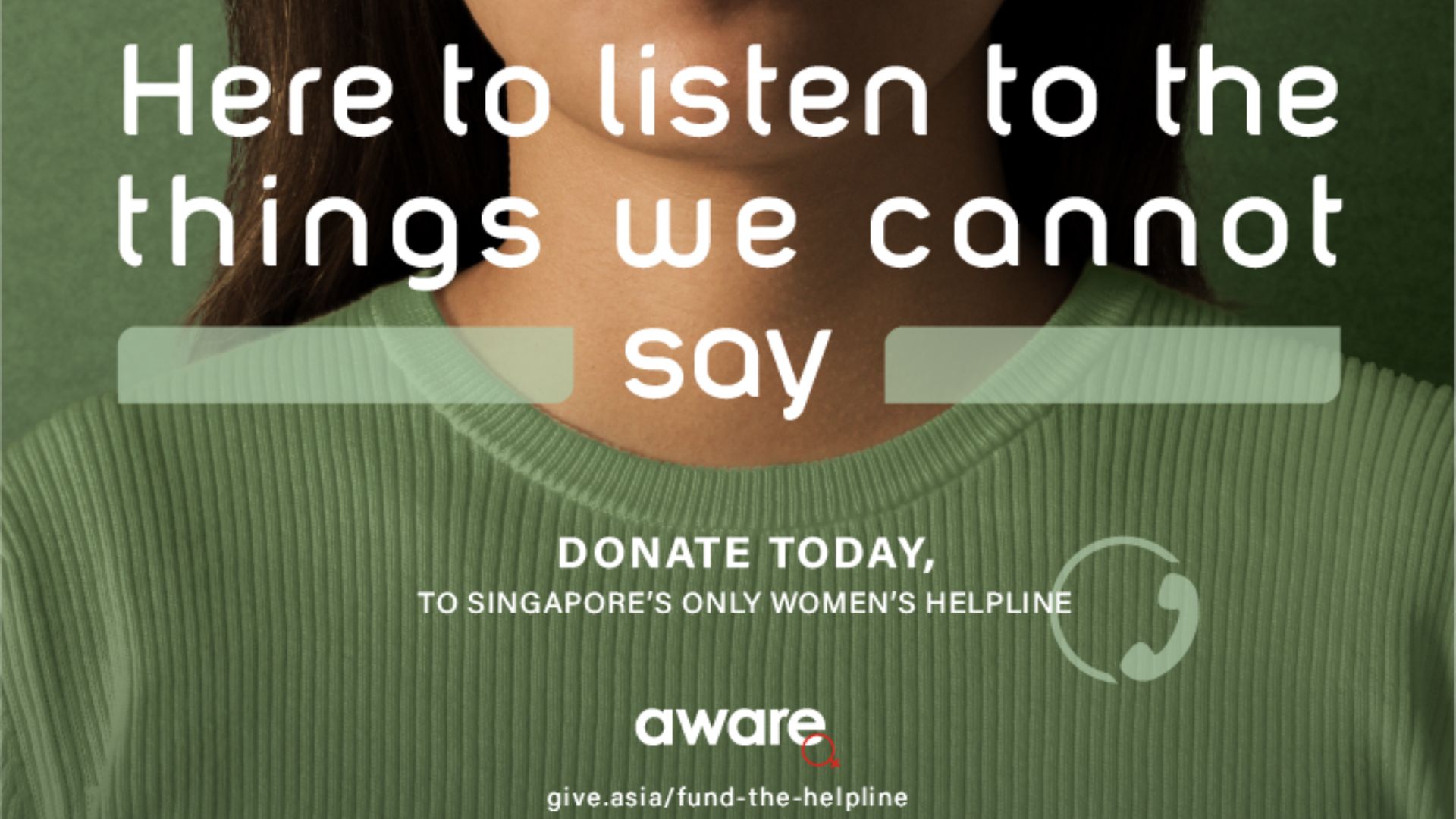
The money will go towards intensive volunteer training, for staff to manage operations, research to ensure the service is up to speed on the latest developments, and the infrastructure to keep multiple phone lines, including its online chat service, open throughout the day.
All donations will be matched dollar for dollar by the Tote Board and the Government, while excess funds will be directed towards other services and programmes to support women.
If you wish to donate to the AWARE Helpline, please click here, and if you wish to find out more about the Helpline, click onto this link.
RELATED: Domestic Violence: A Troubling Surge during Circuit Breaker
Join the conversations on TheHomeGround Asia’s Facebook and Instagram, and get the latest updates via Telegram.



